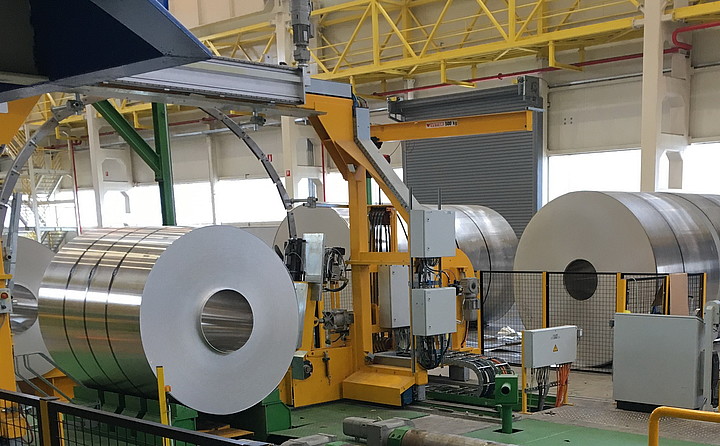SA to be affected by US tariffs on aluminium sheets
Eighteen countries would be affected by tariffs on aluminium sheets imported to the USA, the Trump administration said yesterday after a preliminary investigation that concluded these countries “dumped” the light metal in the U.S.
Foreign companies that price their products in the U.S. market below the cost of production or below prices in their home markets are subject to antidumping duties.
The tariffs will be immediately imposed on aluminium products from the following countries: Bahrain, Brazil, Croatia, Egypt, Germany, Greece, India, Indonesia, Italy, Oman, Romania, Serbia, Slovenia, South Africa, South Korea, Spain, Taiwan and Turkey. Together, they exported nearly $2 billion in aluminium to the U.S. in 2019, according to the US Commerce Department.
The U.S. is already imposing tariffs on Chinese and Iranian aluminium.
Traditionally, antidumping tariffs have been enforced when the U.S. determines that a foreign country has subsidized products or sold them at an unfairly low rate to Americans.
The Aluminum Association, a trade group that represents American aluminium companies, praised the move.
The petitioners are the Aluminum Association Common Alloy Aluminum Sheet Trade Enforcement Working Group and its individual members.
“The Department’s aluminium sheet investigations constitute the broadest U.S. trade enforcement action in two decades,” said Secretary of Commerce Wilbur Ross. “We look forward to receiving parties’ comments on the preliminary determinations that aluminium sheet imports from 18 countries have been dumped, and in some cases unfairly subsidized, into the U.S. market.”
Commerce preliminarily determined that exporters have dumped common alloy aluminium sheet in the United States at the following rates:
- 4.21 percent for Bahrain
- 49.48 percent to 136.78 percent for Brazil
- 3.22 percent for Croatia
- 10.42 percent for Egypt
- 51.18 percent to 352.71 percent for Germany
- 2.72 percent for Greece
- 0 percent to 47.92 percent for India
- 32.12 percent for Indonesia
- percent to 29.13 percent for Italy
- 3.53 percent for Oman
- 12.51 percent to 83.94 percent for Romania
- 11.24 percent to 25.84 percent for Serbia
- 4.80 percent for Slovenia
- 8.98 percent for South Africa
- 5.04 percent for South Korea
- 3.75 percent to 23.32 percent for Spain
- 18.02 percent for Taiwan
- 12.71 percent to 12.90 percent for Turkey
As a result of these decisions, Commerce will instruct U.S. Customs and Border Protection to collect cash deposits from importers of common alloy aluminium sheet from the above-named countries based on the preliminary rates noted above.
In 2019, U.S. imports of common alloy aluminum sheet were valued at:
- $241.2 million from Bahrain
- $97 million from Brazil
- $25.2 million from Croatia
- $43.8 million from Egypt
- $286.6 million from Germany
- $102 million from Greece
- $123.3 million from India
- $139.2 million from Indonesia
- $85.3 million from Italy
- $200.2 million from Oman
- $29.3 million from Romania
- $9.7 million from Serbia
- $35.2 million from Slovenia
- $119.1 million from South Africa
- $121.7 million from South Korea
- $57.1 million from Spain
- $146.3 million from Taiwan
- $122.8 million from Turkey
The strict enforcement of U.S. trade law is a primary focus of the Trump Administration. Since the beginning of the current administration, Commerce has initiated 286 new antidumping duty (AD) and countervailing duty (CVD) investigations, a 267 percent increase from the comparable period in the previous administration.
The antidumping duty law provides American businesses and workers with an internationally accepted mechanism to seek relief from the harmful effects of unfair pricing of imports into the United States. The CVD law provides American businesses and workers with an internationally accepted mechanism to seek relief from the harmful effects of unfair subsidization of imports into the United States. Commerce currently maintains 540 AD and CVD orders which provide relief to American companies and industries impacted by unfair trade.




